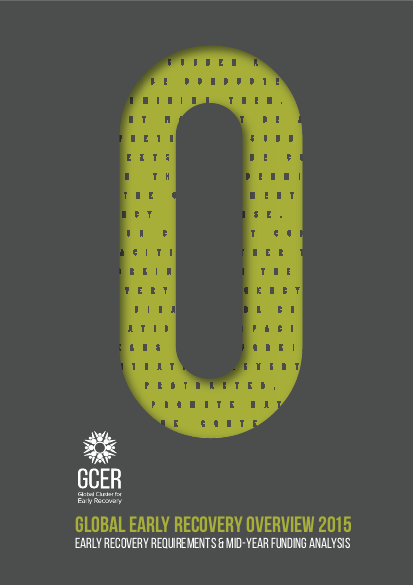
In 2015, the Global Cluster for Early Recovery (GCER) sought to measure how well early recovery was integrated into each cluster, and in parallel, to advance understanding of the relative importance of early recovery principles and practices in humanitarian crises overall. In designing a methodology to undertake this analysis, two assumptions were made.
- The best, and perhaps the only, way to collate information on how early recovery initiatives are being mainstreamed and early recovery principles are being adopted in crises was to extract it from planning documents that were tied to financial tracking. Analysis of planning documents would allow estimations on the number and kinds of projects undertaken, and the links between these documents, the Online Projects System (OPS), and the Financial Tracking Service (FTS) would allow further analysis to estimate the amount of resources assigned to each project. ?
- There are considerable concerns around the quality and completeness of data found in the FTS in particular; however, as key humanitarian tracking mechanisms, the FTS and OPS were the only real ways to find resources information.